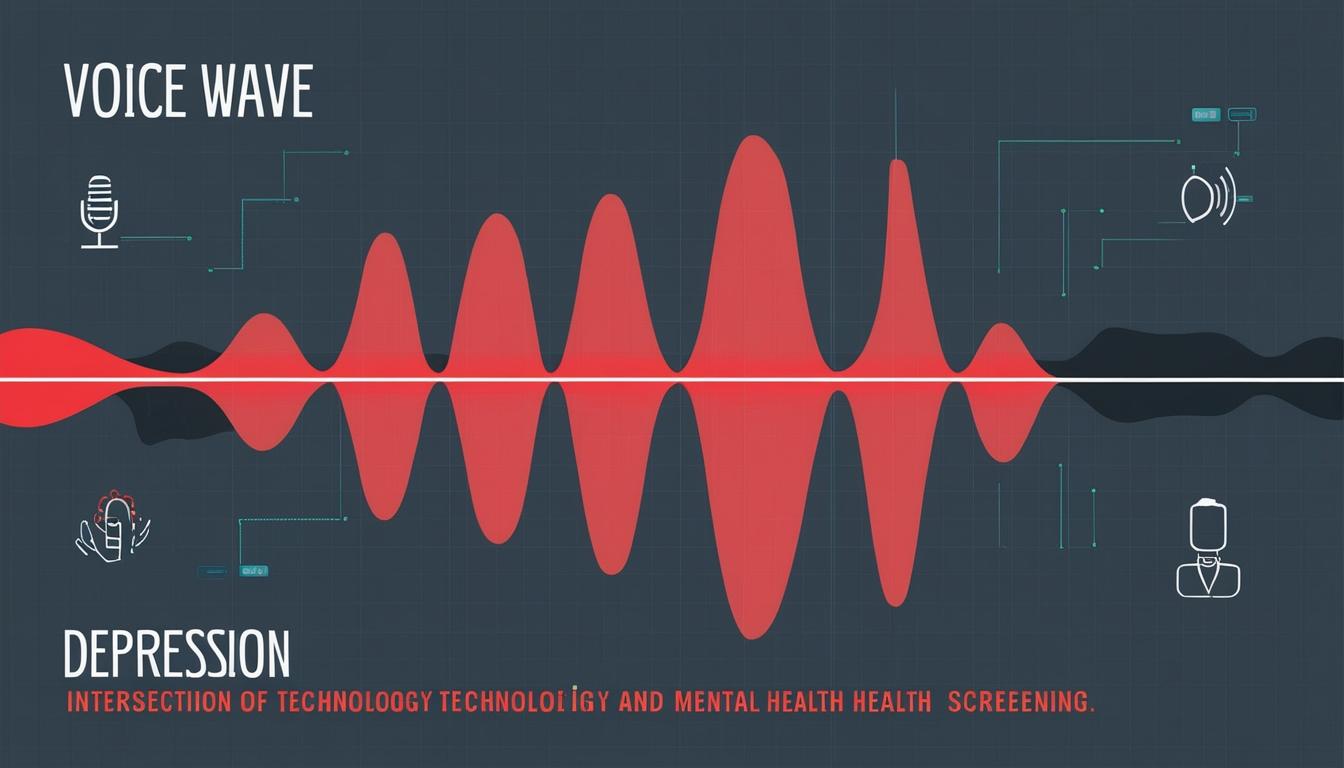In a notable advancement for mental health screening, a machine learning (ML) tool has demonstrated the capability to identify vocal markers of depression in over 70% of cases within just 25 seconds. This breakthrough was highlighted in a recently published study in The Annals of Family Medicine, which evaluated the effectiveness of this innovative voice biomarker tool for detecting signs of moderate to severe depression.
Depression remains a significant health issue, impacting approximately 18 million Americans each year, with nearly 30% experiencing its effects at some point in their lives. Despite guidelines advocating for universal screening, the rates of depression screening in primary care settings are alarmingly low, with fewer than 4% of patients being screened. Furthermore, even when screening is recommended, less than half (45%) of eligible patients undergo testing.
The potential for machine learning to enhance screening rates is promising, as the tool requires no additional administrative work from healthcare providers. It leverages the distinct speech patterns often associated with depression, including hesitations, stuttering, longer pauses, and slowed speech, to analyse vocal traits known as voice biomarkers. The ability to perform non-invasive, objective, and automated assessments could significantly increase accessibility and efficiency in identifying at-risk individuals, particularly in virtual healthcare environments.
In their study, researchers enlisted a diverse group of 14,898 adults through social media in the U.S. and Canada, with a specific focus on recruiting men and older adults. Participants completed a standard depression questionnaire and recorded at least 25 seconds of speech using their personal devices. The recordings were then processed to ensure audio clarity and consistency.
The ML model categorised the voice recordings into three distinct groups: individuals likely exhibiting signs of depression, those with no observable markers, and cases necessitating further evaluation due to unclear results. The researchers compared the ML model’s predictions against the actual depression questionnaire outcomes, refining the system to minimise inaccuracies.
Findings revealed that the ML model achieved a sensitivity rate of 71.3% and a specificity of 73.5%, indicating its reliability in detecting depression. Out of the validation samples examined, about 20% of cases were deemed uncertain, warranting further assessment. The model's performance varied across demographic groups, identifying depression most accurately in Hispanic/Latine (80.3%) and Black/African American (72.4%) participants, while specificity was highest among Asian/Pacific Islander (77.5%) and Black/African American (75.9%) groups.
Notably, women demonstrated higher sensitivity (74%) but lower specificity (68.9%), while men showed lower sensitivity (59.3%) and higher specificity (83.9%). Additionally, younger participants (under 60) yielded more consistent outcomes compared to their older counterparts, whose sensitivity was recorded at 63.4% yet exhibited a higher specificity of 86.8%.
While the ML model presents a promising avenue for depression screening, it is important to note that it does not replace clinical diagnoses. The technology has shown similar results to established screening tools, yet further research is necessary to address challenges related to balancing false positives and negatives, especially considering demographic differences in model performance.
With diverse participants from the U.S. and Canada, the study opens the door for future exploration on how comorbid conditions influence voice biomarkers. Additionally, future investigations could refine the model to enhance accuracy across varied populations.
As this technology continues to evolve, the potential for ML-based voice analysis to support universal depression screening remains a significant focus, promising to assist clinicians in identifying individuals in need of support. However, additional studies are warranted before widespread implementation can occur.
Source: Noah Wire Services
